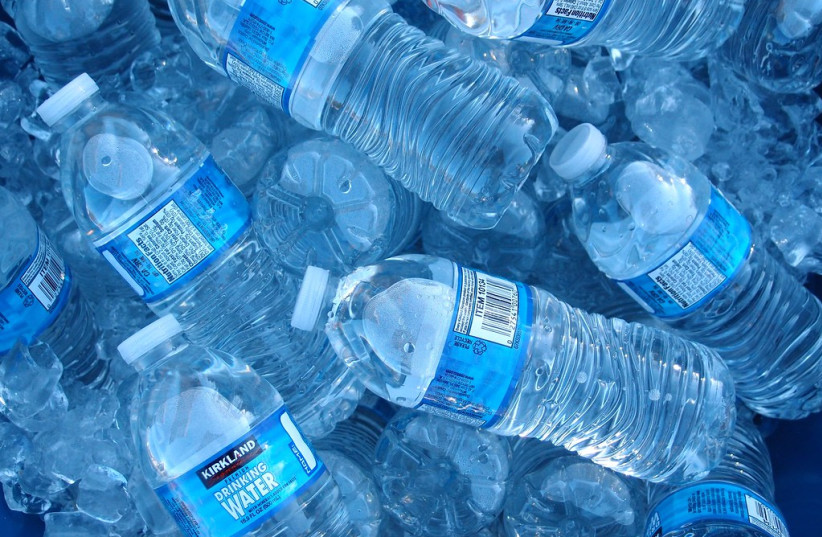In more than 30 cities around the world, millions of people obtain their drinking water from storage tanks because tap water is often available for only a few hours at any one time.
When the public water supply is inadequate, households and businesses have to call private providers who truck in potable water from groundwater wells in the countryside to cities.
This is partly licensed by the state, but it mostly takes place illegally. In Jordan, Israel’s parched neighbor to the east signed a deal with the government in Jerusalem two years ago for doubling the desalinized water supply to Jordan to the tune of 50 million cubic meters a year.
The water deliveries by tanker truck from private Jordanian providers make up for the deficit of the public water supply network, according to researchers at Germany’s Helmholtz Center for Environmental Research (UFZ).
UFZ economist Dr. Christian Klassert, the lead author of a study just published in the prestigious journal Nature Sustainability under the title “Unexpected growth of an illegal water market,” said that in Jordan, “these water deliveries by tanker truck make up for the deficit of the public water-supply network.
But the role that these largely illegally traded water supplies actually play in the Jordanian water market was unclear until now.
“The official data on well extractions for truck water deliveries does not reflect the actual situation. They are considerably lower because the black market for water from tanker trucks had so far not been quantified,” said the German economist.
“Moreover, as long as private water markets compensate for the weaknesses of the public water supply, there is little pressure for the state to take measures to improve it. However, groundwater supplies will eventually be depleted. Greater insight into such black markets is therefore required.

Water black market
"Especially with the increasing threat posed by climate change, more information on the contribution of these black markets to water security and their impact on society, the environment, and especially on groundwater supplies as well as the possible consequences of stricter state regulation of the markets is urgently needed."
The UFZ scientists, together with hydrologists from California’s Stanford University, developed a socio-economic computer model of the Jordanian water sector that links the human-driven water cycle with the natural water cycle. They extended the model by simulating the black market for water. This was a difficult undertaking because there were hardly any reliable data available for this until now.
To reliably model the amount of water traded in Jordan and the effects on groundwater levels, energy consumption, and greenhouse gas emissions, the researchers asked well owners and tanker water-truck drivers from which wells they extract how much water, how great the distances between the well and the sales market are, and how frequently they take these routes.
With this modeling approach, the UFZ economists were able to quantify the extent of the black market for 2015 as an example. They learned that the amount of water traded illegally exceeded the amount that was officially allowed to be traded by a factor of 10.7. This means that in 2015, 91% of the water delivered by truck was extracted illegally from wells.
“The implications of illegal water deliveries by tanker truck have been completely underestimated so far,” Klassert said.
According to the projections of the researchers, the importance of water deliveries by tanker truck will continue to increase.
“Household dependence on water tanks will increase 2.6-fold by 2050 – from 4.6% of the population to 12%,” predicted co-author and UFZ economist Prof. Erik Gawel.
The main reasons for this are high population growth and decreasing groundwater supplies. Some households will also no longer be able to use this type of water supply because of increasing water prices.
Because the average distances between wells and sales markets have increased from 13 to 20 km and water extraction is becoming more costly, the price for water could increase from $3/m3 in 2016 to $4/m3 in 2050. Poorer households will thus reach their financial limits – especially because the price for this is already almost five times higher than for tap water.
“However, the prices are not arbitrarily inflated but rather realistically reflect the production, personnel, and transport costs,” Gawel added. For poorer sections of the population living in areas with an insufficient public water supply, the high prices for water will become a growing problem. “In these cases, the state would have to intervene. For example, by improving the state water supply or subsidizing the purchase of water for these populations,” he said.
However, the uncontrolled extraction of drinking water not only has social consequences but also affects groundwater supplies. In regions where the proportion of illegal wells is particularly high, around the capital Amman and the city of Zarqa, the groundwater level is dropping quickly – and in some places by 3.5 meters per year.
Even now, wells have to be drilled to a depth of 220 meters to be able to extract water from them. The extraction of well water for tanker trucks greatly contributes to this development and, in some parts of the country, accounts for one-third of the over-extracted water.
As for how to stop the black market, the Jordanian government is now shutting down illegal wells.
“Although this stabilizes the decline in the groundwater table, it has negative consequences for the poorer Jordanians who are dependent on the supply of drinking water via tanker trucks and can thus no longer afford the water.”
"The scale of the water deliveries shows how insecure access to drinking water already is in Jordan. The population is also growing rapidly – especially because the country has taken in many refugees from Iraq and Syria. The problems of drinking water supply will not disappear but rather become increasingly more pressing,” Klassert concluded.
